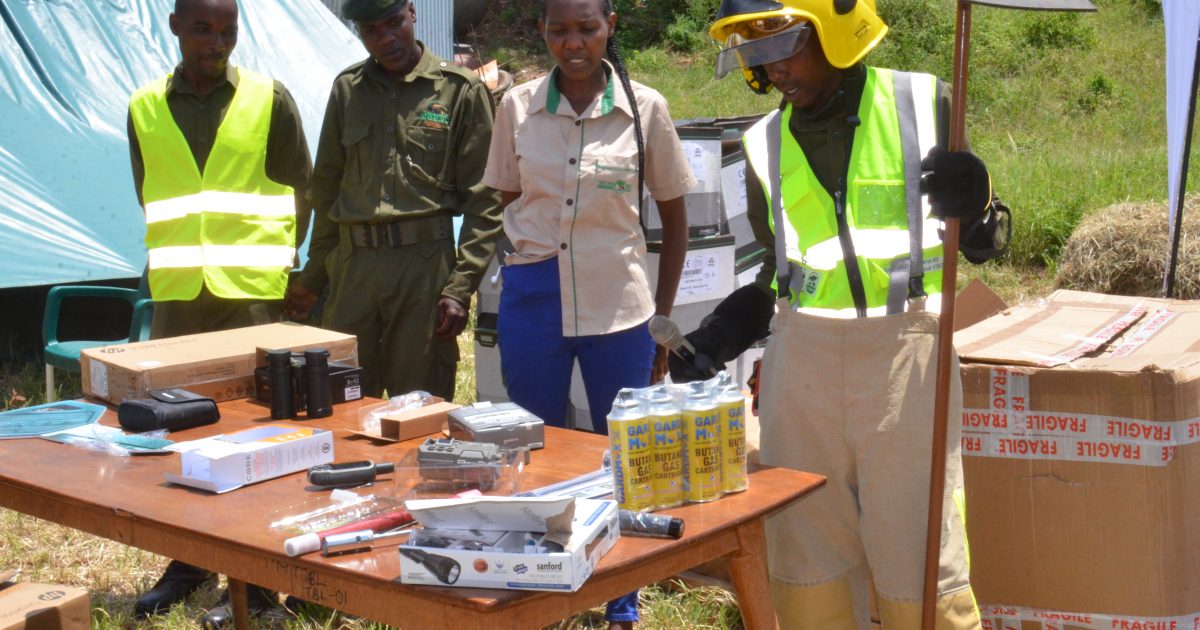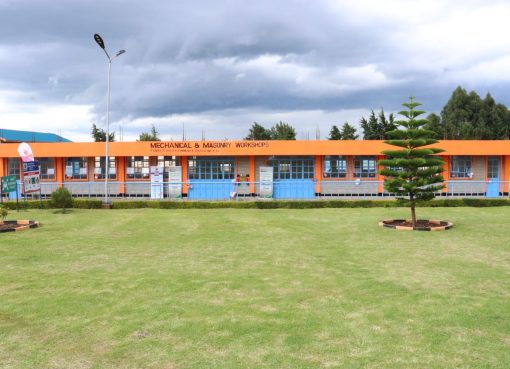Whenever drought knocks in the expansive Tsavo landscape, severe wildfires soon follow. During such times, Kenya Wildlife Service (KWS) fire-spotting patrols are intensified. Workers for conservation groups working in Tsavo tirelessly scan the horizons for signs of thin wisps of smoke that would signify the official arrival of the dreaded fire season. Pastures are destroyed; wildlife killed and the delicate ecosystem destabilized.

This drought-fire cycle has characterized the iconic Tsavo Conservation Area for ages. However, it was in 2020 at the height of Covid-19 pandemic that Tsavo was nearly brought to her knees after one of the worst fire outbreaks in recent memories.
For several months, Tsavo National Park convulsed from a series of mysterious devastating fires that destroyed over 6,000 acres of grassland. The fires were suspected to be acts of arson by illegal herders hitting back at KWS over a sustained operation to flush them out from the protected area.
The fires would erupt and spread rapidly fuelled by the extremely dry conditions and strong winds that pushed the blaze deeper into virgin pastures.
Fire-fighting teams of KWS, police, Kenya Defense Forces (KDF) and community volunteers would combine forces to put out the blaze before rushing to another site where another fire had been spotted.
One of the major challenges reported by the fire teams was late arrivals by responders, lack of proper fire-fighting equipment and absence of training in firefighting. This made fighting Tsavo fires not only an arduous undertaking but also a life-threatening one.
However, a strategic collaboration between conservation actors and members of conservancies in Tsavo is expected to largely address the menace of fire outbreaks in the region.
In this partnership, World Wildlife Fund (WWF) has collaborated with Mgeno Conservancy to bolster the capacity and ability to respond effectively to all fire emergencies. WWF had donated state-of-the-art firefighting equipment worth millions to the conservancy as part of a long-term plan to improve the community’s ability to combat fire disasters.
Speaking on Friday during the equipment handing over ceremony at Mgeno in Mwatate, Mr. Martin Mulama, WWF Southern Landscape Manager, said the equipment and training to the community scouts would significantly bolster the conservancies’ preparedness to spot and contain destructive wildfires in Tsavo.
“We are engaging in training on habitat management through empowering the ranches to manage emergencies like fires that are a threat to growth and stability of conservancies. The equipment and training will enable conservancies to manage fire outbreaks and rehabilitate the affected areas,” he said.
Amongst the equipment given include a tractor and a grader for dredging conservancies’ cutline and fire breaks. There were also several cans of fire-dousing chemicals, special fire-resistant suits for community scouts, reinforced helmets, flares and binoculars. There were also GPS kits to pinpoint the exact location of the fire outbreak and two motorbikes to improve mobility for the workers.
Mr. Alfred Mwanake, the Chief Executive Officer (CEO) of Taita-Taveta Wildlife Conservancies Association (TTWCA) disclosed that the conservancies lost over 60 acres of pastures to wildfire.
He noted that the loss had the potential to adversely impact on the ecosystem of the conservancies including interfering with productivity due to loss of pastures.
“We have started using the tractor and graders to construct fire breaks. Already, we have done over 120-km in five ranches and this activity will continue until we are confident, we can disrupt the spread should an outbreak occur,” he said.
He also added that as part of rehabilitating the sections that were destroyed by the fires, the conservancy associations were in the process of making comprehensive grazing plans that would enhance pasture regeneration.
He added that the plans would restore the conservancies to what they used to be.
Apart from the equipment, the 25 community scouts at Mgeno conservancies were trained on firefighting skills and proper equipment use. The equipment will be deployed to support efforts to contain fires that might spread from inside the protected area
WWF officials explained that such collaborations with conservancies were also intended to promote sustainable small-scale economic enterprises for communities living in the region. The targeted groups include women and youth who are trained on bee-keeping activities and apiaries’ management.
As part of additional support to commercialize conservancies in the region, WWF is also supporting the construction of an eco-lodge to promote tourism and boost revenue streams for Mgeno ranch.
By Wagema Mwangi




